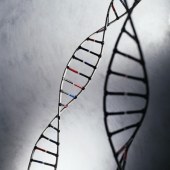- 8 Ways to Increase Dopamine Naturally
- 7 Best Breads for Maintaining Stable Blood Sugar
- Gelatin vs. Collagen: Which is Best for Skin, Nails, and Joints?
- The Long-Term Effects of Daily Turmeric Supplements on Liver Health
- Could Your Grocery Store Meat Be Causing Recurring UTIs?
- Are You Making This Expensive Thermostat Error This Winter?
- Recognizing the Signs of Hypothyroidism
- 10 Strategies to Overcome Insomnia
- Could Artificial Sweeteners Be Aging the Brain Faster?
- Techniques for Soothing Your Nervous System
Gene Might Be Linked to Sleep Disorder Narcolepsy


A new study links a genetic variation to narcolepsy, the medical condition that causes people to become excessively sleepy and even lapse into sleep involuntarily.
The genetic variation is fairly common, while narcolepsy is rare. Among more than 2,500 participants, researchers found that people with the variation are 251 times more likely to have narcolepsy with cataplexy — muscle weakness brought on by actions such as laughter — than those without the variation.
For the study, which was published Jan. 1 in the journal Sleep, researchers analyzed the genetic makeup of nearly 1,300 people in Europe who suffer from narcolepsy with cataplexy and more than 1,400 people who don’t. Nearly everyone with the condition had the genetic variation, which is linked to the functioning of the immune system.
Previous research has suggested a link between narcolepsy and problems such as infections, according to the American Academy of Sleep Medicine. One theory is that in people who are genetically susceptible to narcolepsy, the immune system goes out of whack and accidentally destroys brain cells that are crucial to keeping the body alert.
The authors also suggested that high-resolution genotyping — a process in which an individual’s DNA is examined — might aid in diagnosing patients suspected of having narcolepsy.
More information
For more about narcolepsy, see the U.S. National Library of Medicine.
Source: HealthDay
Copyright © 2026 HealthDay. All rights reserved.










